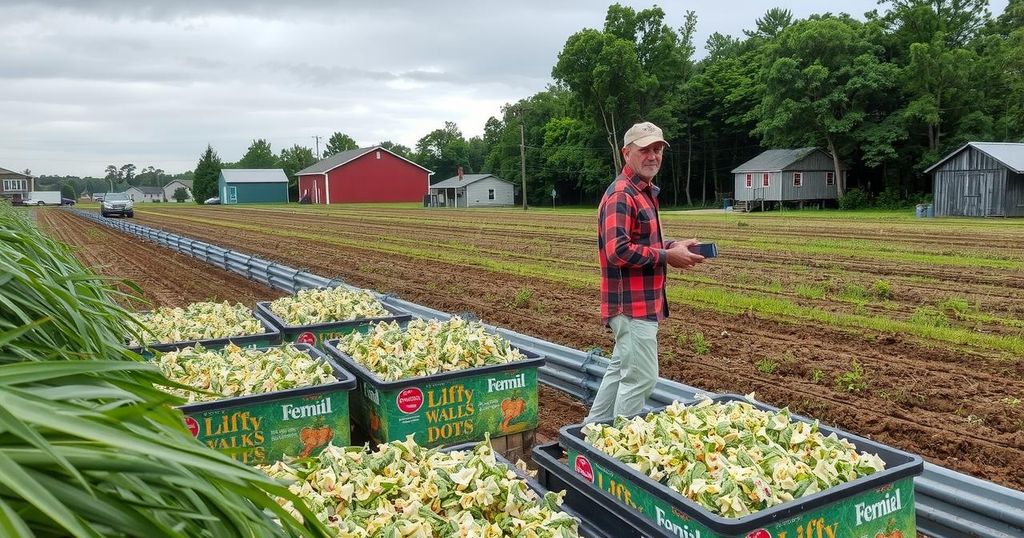Hurricane Helene has caused over $5.5 billion in losses for Georgia farmers, leaving many emotionally and financially strained as they deal with the aftermath more than two months later. The storm disrupted critical harvesting periods, leading to vast agricultural losses across multiple states. Despite insurance claims, recovery remains an uphill battle for many, as they struggle to restore their farms and livelihoods.
Georgia farmers are still grappling with the devastating aftermath of Hurricane Helene, which caused significant losses exceeding $5.5 billion in the state. Over two months after the catastrophic storm made landfall, farm equipment lies damaged, tree limbs are down, and farmers face emotional turmoil as they contemplate their future. For many, the urgent task of cleanup coincides with the harvesting season, exacerbating the difficulties. The storm affected a broad swath of agricultural activity across the South, leading to extensive crop destruction and equipment loss.
Hurricane Helene, classified as a Category 4 storm, struck Florida on September 26 before pushing north into Georgia and beyond. Agricultural experts estimate that the overall losses could surpass $10 billion across several states due to wrecked crops, timber loss, and damaged infrastructure. For cotton farmers such as Chris Hopkins, the timing was particularly unfortunate, as Helene struck just as harvesting began, leaving much of his cotton irreparably lost. Despite insurance coverage, many will find it challenging to recover fully from these significant financial setbacks.
The storm notably tore through various crops, including cotton, pecans, and vegetables, with destruction extending even to poultry operations. The secondary effects are also of concern, with processing plants operating at reduced capacity due to the loss of poultry. The situation has led to state and congressional responses, with Georgia’s Governor Brian Kemp prioritizing relief efforts, though direct assistance to farmers may face legal obstacles. As farmers face a lengthy recovery period, the local economy will continue to feel the strain from this natural disaster.
Experts have noted how the impact on consumer prices may remain limited due to the ability of other agricultural regions to meet supply needs. However, Georgia’s producers of pecans face unique challenges, given the state’s agricultural footprint in this sector. The lasting ramifications for farmers will include a substantial period of rebuilding and recovery, particularly for those who lost their primary source of income.
Hurricane Helene wreaked havoc across the Southeastern United States, particularly impacting the agricultural sector in states like Georgia, North Carolina, Virginia, and South Carolina. The storm was especially devastating for crops and livestock, arriving just as the fall harvest season began. Farmers faced not only the loss of their crops but also extensive additional costs associated with restoring their farms. The economic repercussions of the storm are expected to be profound, affecting the livelihoods of many agricultural workers and the overall economy of the region.
In summary, Hurricane Helene’s devastation presents a significant challenge for Georgia farmers, with losses totaling at least $5.5 billion. The disaster has highlighted not only the emotional and financial strain on individual farmers but also the vulnerability of the agricultural sector to extreme weather events. As relief efforts commence, the future for many farmers remains uncertain, with large-scale recovery and rebuilding efforts anticipated in the years ahead.
Original Source: ktxs.com







